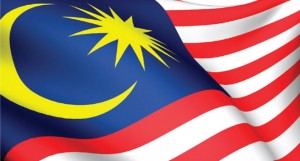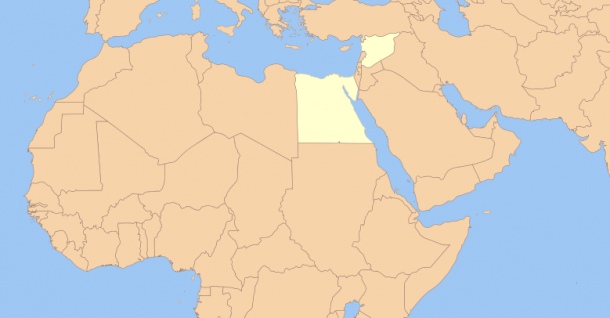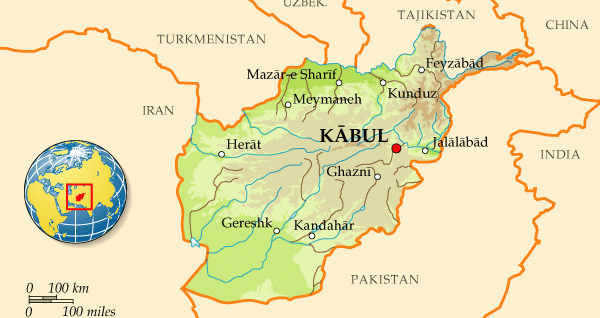Malaysia is the country in Southeast Asia with population about 30 million people. Approximately 65% of total number of population are Bumiputras (“sons of the soil”) – Malayans and indigenous groups, considered as native population; 26% are Chinese; 8% are Indians and other South Asian nations. The country achieved the solid success in the development for the short period of its independent existence showing the rapid economic growth and high living standards.
***
Historically Malaysia is the polyethnic state; migration, trade, missionary activity and colonial politics of western states made an impact on ethnic structuring. The problem of ethno confessional contradiction is still central in Malaysia like in the most polyethnic states, though it isn’t so acute as in Indonesia, Philippines or Thailand. As the matter of fact there were no national conflicts during 40 years.
This means that Malaysia may be considered as an instructive example of ethnic correlation, where the main focus is made on compromise and non-confrontational existence. Taking into account the complexity of modern ethno confessional relations happened to be in the world, the Malaysian experience of peaceful cooperation of groups of population who are so different in language, religion and culture is important and timely.
***
In 1950th of XX century Malaysia was in a very difficult position economically and religiously. But the Malayan Chinese lived through their “golden age”. Actually the Chinese succeeded in becoming the coupling agent between the British, Malaysian government and people. Most of them earned a decent assets and owned parent parcels. It was obvious that sooner or later this situation could trigger off the acute ethnic clash, the civil war and collapse of Malaysia received its independence just recently. In this regard it was necessary to reach compromise between ethnopolitical groups in Malaysia.
After Malaysia received independence the United Malays National Organization (UMNO) became the leading political party. UMNO was formed in 1946 comprising different associations and consolidations of Malay community.
The Malaysian Chinese Association (MCA) was founded in 1949 and initially it was planned as an organization to decrease the influence of communist China among the Chinese diasporas in Malaysia. Gradually as MCA became the party it started to represent the interests of economically strong Chinese community.
Besides those two leading political parties there is the Malaysian Indian Congress (MIC) functioning since 1945. It represents the interests of ethnic Indians in Malaysia including the middle and big businessmen of Indian origin.
Shortly before the independence the political elite of Malaysia acknowledged that the country belongs to “deeply separated societies”. In this regard the decision to overcome the ethnic problems by establishing the National Front was reached. They were the leaders of UMNO who offered to search the ways to form the alliance between Muslim Malay community and other ethnic and religious groups. They proposed to include the representatives of MCA and MIC to the party structure considering that the Malays will be the leading part in the organization.
However none of the parties approved this idea because the national and religious contradictions between all national communities of the country prevailed. Anyhow it was necessary to unite and this necessity was determined by internal contradictions and external threats. Since Malaysia achieved the independence almost without military struggle still there were the external threat and the risk of country collapse due to ethnic contradictions.
***
In 1952 UMNO and MCA signed the cooperation pact in the local elections. The next year they went to national elections together. In 1955 MIC joined the coalition. It was the beginning of the new political force formation. Thus the Alliance party was formed.
In fact it meant that three different (ethnically, religiously and politically) political parties had formed the unified alliance which became the ruling party in the state. The economic rights of Chinese and Indians were accepted and they were granted the rights to citizenship and to place of residence, freedom to keep and disseminate their religion, culture and language. The famous Malaysian politician Mahathir Muhammad has noted in his book “The way forward”:
“The unique coalition of the principal ethnic groups came to be insomuch successful that out of 57 mandates in elections only the one had been won by oppositional Pan Malaysian Islamic Party (PMIP) consisted of Malays exclusively. Alliance candidates won because they relied on the support of the representatives of all races, whereas the other parties participating in the elections reckoned on the support of the certain ethnic group”.
Hence the so called “consocial democracy”, if the meaning of this term is apprehended properly, has been formed in Malaysia. This specific form of system suggests such organizational cooperation of ethnic, religion and cultural communities which allows these communities to avoid segregation. This system unifies the people separated from each other by different origin and different ideologies in the same state. The important feature of the state system is that the political leaders of all significant segments of multiconstituent society are cooperating in ruling the state within the big coalition. To achieve and to defend the state rule in multiconstituent societies is a difficult but quite feasible issue. And in the situation when there is a threat of collapse this idea is the best solution. Malaysia proved it.
Strategic thinking and wisdom of Malaysian political leaders of UMNO helped the country to avoid ethnic and confessional conflicts and prevent separation. The solid foundation was laid by virtue of which Malaysia as an integral state was able to implement important economic reforms that made the Muslim state the one of the successful states in the world.
***
It would be innocent to believe that everything was smooth in the history of Malaysia. In 2013 the paratroops of separatists from Philippines landed in one of the Malaysian provinces. They called for Sulu Sultanate revival. The attack of religious extremists who suddenly “recalled” the fallen into oblivion sultanate was not accidental. These events happened exactly on the eve of Parliament elections. It’s good that the Malaysian society didn’t believe the promises of radicals and the concerned parties failed in their attempts to raise the opposition dressed up in “pro Islamic” clothes to the power.
The tragic events in May 13, 1969 when hundreds of people died during ethnic collisions couldn’t destabilize Malaysia either. It became easier to neutralize these problems by virtue of solely sound decision on consolidation of Malays, Chinese and Indians into the Alliance Party. The New economic politics had been proposed immediately. This politics provided for the economy restructuring to achieve the equal distribution of national wealth. The idea was to make the Malays richer without making the representatives of other ethnos poorer.
Eventually in 1970 the new official ideological scheme of the state – Rukunegara (“Agreement on loyalty to the state”) was established. It proclaimed the tendency to strengthen the unity of polyethnic and socially true society, the respect to cultural traditions and development of the state.
The state motto “Satu Malaysia” (“United Malaysia”) became the true realization of the nation unity, emphasizing the unity of nation despite the ethnic belonging and religion. You can see red and blue (the colours of the Malaysian flag) digit one meaning solidarity in different places — bus stops, buildings and postmarks.
The political leaders of the state timely realized the importance of ethnic, religious and cultural unity of diverse parts of society. The wisdom showed by the Malaysian authorities half a century ago created the conditions for the strong middle class among the Malays and other nations now. As a result the intelligent and tolerant society capable to contact the representatives of different ethnic groups was formed in Malaysia.
The wise decision was taken in the economy as well. The new house construction in all big cities of the state dissolved the ethnically homogeneous areas. Since the groups of interests for the urban citizens become more important than the traditional relations the new generation of the Malays facing the real and not virtual multiculturism every day come in the cities.
The reform of education improved the situation and now in information field. The Malaysian society became more educated, because the schools were not for rich people any more. The schoolchildren and students began to receive the education regardless of their ethnic belonging. All these factors helped to form the new moods among the Malaysian society, the understanding of social unity of people.
***
Malaysia today is the perfect example for the whole world showing how the understanding of processes and proper reaction of the leaders has made it possible to save the state and raise it to the high level. Thus Malaysia can be used as the example of strategic thinking victory over political innocence and uncompromising fanaticism.
And the Muslim world can draw the moral from this example, and not only for the whole state but for the particular regions also, where the problems similar to those in Malaysia still exist.
Ilmutdin Gasanov, Muslim Politic-portal analyst
![Электронный журнал [Электронный журнал]](/magazine.static/magazine-front.jpg)



